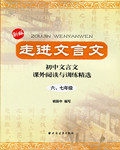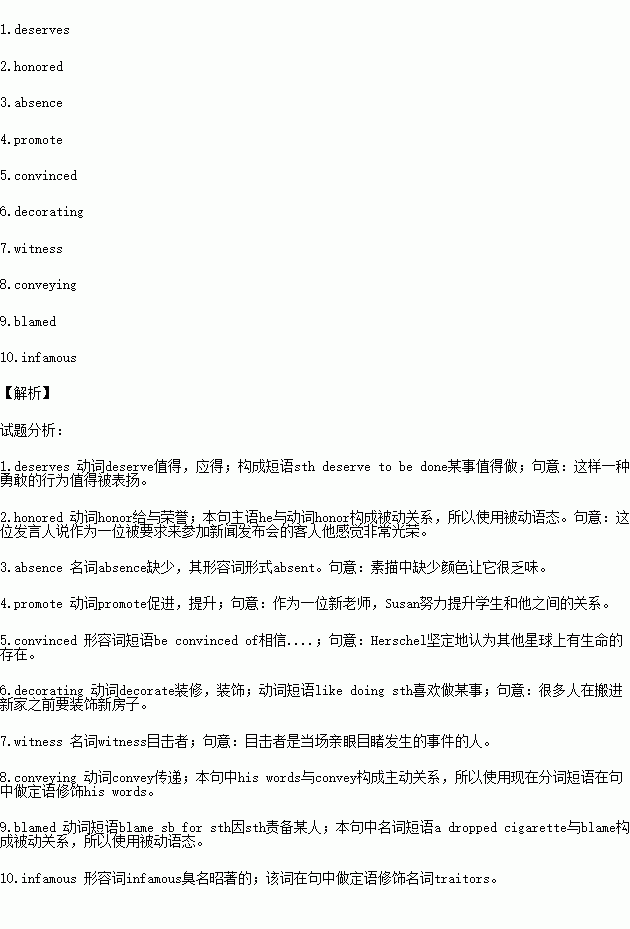题目内容
1.Such a courageous behavior really________(值得) to be praised.
2.The speaker said that he was feeling highly___________(给予荣誉) as one of the guests invited to the press conference.
3.The ________(缺乏) of color in that drawing makes it dull.
4.As a new teacher, Susan tried to ________(促进) good feelings between students and her.
5.Herschel was firmly__________(确信)of the possibility of life on other planets.
6.Many people like__________ (装饰) their new houses before moving into them.
7.A ________(目击者) is a person who sees what happens with his or her eyes on the spot.
8.His words__________(传达) an unfriendly attitude made the people present annoyed.
9.A dropped cigarette is being ________(负责) for the fire.
10.The_________(臭名昭著的) traitor was sentenced to death.
 字词句篇与同步作文达标系列答案
字词句篇与同步作文达标系列答案 走进文言文系列答案
走进文言文系列答案
